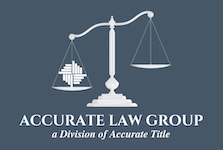 The qualified mortgage rule was issued by the Consumer Financial Protection Bureau in January 2013 as part of the Dodd-Frank Reform Act. It actually takes effect January 2014 and determines the way companies must evaluate and verify facts for consumers. A summary of the qualified mortgage rule for NH loans can be found below.
The qualified mortgage rule was issued by the Consumer Financial Protection Bureau in January 2013 as part of the Dodd-Frank Reform Act. It actually takes effect January 2014 and determines the way companies must evaluate and verify facts for consumers. A summary of the qualified mortgage rule for NH loans can be found below.
Summary Of The Qualified Mortgage Rule For NH Loans
The qualified mortgage rule requires mortgage companies to validate financial information from borrowers and to analyze their ability to make payments. First and foremost, the income and assets must be enough to repay the loan. Secondly, the ability to repay must be considered over the life of the mortgage and not merely for an introductory length of time. This is a particularly critical factor for loan programs with adjusting terms.
Elements of the Qualified Mortgage Rule
The qualified mortgage rule provides instructions for identifying the ability to repay, debt-to-income percentage ceilings, and a limitation on points and fees. Mortgage companies will be required to use at least eight specific underwriting factors to evaluate the ability to repay a mortgage. These include:
- Assets and Earnings
- Employment Status
- Credit Reports
- Monthly Home Loan Payments
- Recurring Payments on Additional Mortgages
- Additional Property Ownership Expenses (Municipal Taxes, Association Fees, etc.)
- Other Debts
- Debt-to-Income Percentages
The maximum debt-to-income ratio will be forty-three percent. This is actually higher than the existing 41 percent amount. Lastly, points and other charges must not exceed three percent of the mortgage amount. All of these rules are effective January 2014 as part of the qualified mortgage rule.
Mortgage Programs Eliminated in 2014
Due to these new rules, some mortgage programs will be phased out. These include ones with no documentation, interest-only loans, balloon mortgages, negative amortization, and those for payment periods greater than thirty years. Although these types of loans represent a small percentage of all loans, it will affect specific groups of borrowers such as those looking for jumbo loans.
Intention of the Qualified Mortgage Rule
The real estate and financial crisis is credited to certain mortgage practices such as granting home loans with risky terms or borrowers getting approved for loans that were obviously not within their means to repay. The new qualified mortgage rule specifically addresses toxic loan terms. It also seeks to reduce charges by lenders. All of this is meant not only to protect consumers but also to minimize the chances of a future crisis. The above summary of the qualified mortgage rule for NH loans is offered only as an introduction. To view additional information on the qualified mortgage rule, visit the Consumer Financial Protection Bureau website

